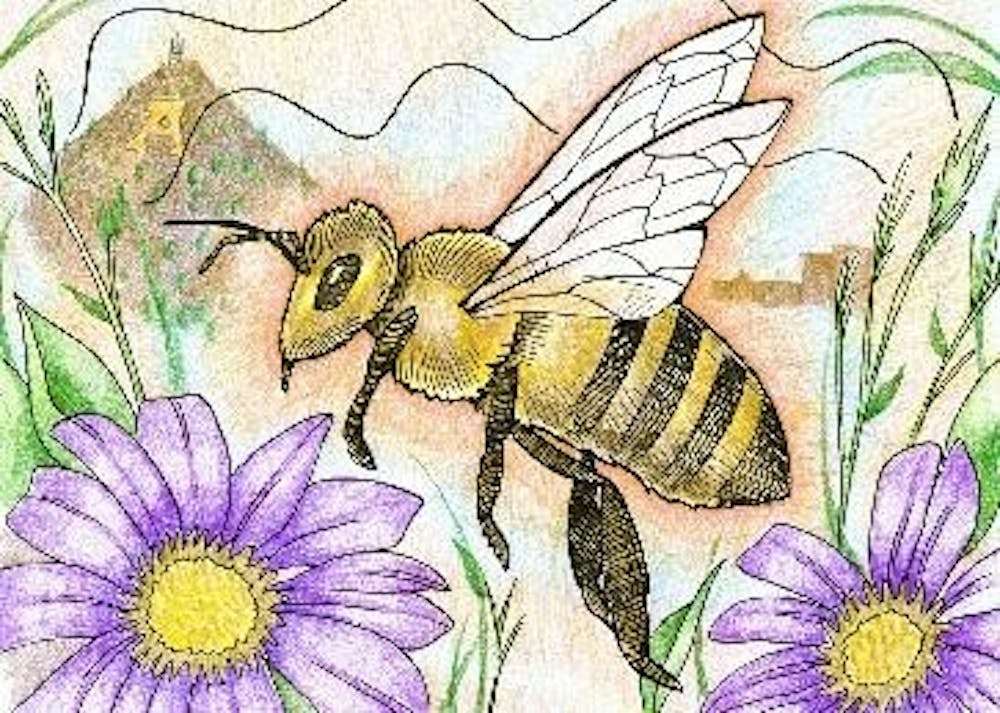ASU joined the Bee Campus USA initiative in August to protect native bees and provide them a refuge on campus.
Bee City USA is a nonprofit initiative that provides guidance for bee protection to communities and campuses, said Laura Rost, Bee City USA coordinator. According to Bee City USA's website, joining the initiative means ASU will ensure native bees have "a variety of native plants ... nest sites, and (are) protected from pesticides."
The initiative is in 45 states, with 312 city and campus affiliates. ASU joined on Aug. 4.
Rost said the initiative wants to affiliate itself with college campuses because there is a "wealth of talents and knowledge and research coming out of these institutions."
Alana Levine, director of facilities development and management, focusing on Zero Waste and Grounds Services, said the partnership was established because Bee City USA's initiative aligned with what ASU was already doing.
The University is focused on becoming more water wise which led to "creating spaces that have more increased biodiversity and have more native or are drought tolerant species. And those species happen to also support pollinators," Levine said.
Levine said Bee City USA will assist ASU by developing the use of integrated pest management, which is vital to reducing pesticides. The approach involves using mechanical control, such as catch and release, instead of chemical control to rid of pests.
ASU will also be protecting pollinators by ensuring a reduction of non-programmable turf. There is programmable turf on ASU on the intramural fields, but non-programmable turf could be reduced and turned into areas with native and drought adapted plants to benefit pollinators, Levine said.
Levine encourages students to take classes at ASU that focus on "pollinator health" to become more educated on native bees and their habitats.
Madeleine Ostwald, a former ASU student who studied animal behavior, said the benefit of this affiliation is that it shows native bees and their habitats are being prioritized at ASU.
The University's protection of native bees can inspire the community to "become curious about what bees live in their neighborhood and try to understand more about why we care about bees," Ostwald said.
Ostwald hopes this initiative can "encourage people to try to live alongside bees, in their homes and in public places they go to" in order to help create a safer habitat for native bees.
Correction: A previous version of this story incorrectly described the benefits of non-programmable turf. The story was updated on Sept. 9 at 10:55 a.m. to correct the error.
Edited by Jasmine Kabiri, Grace Copperthite and Piper Hansen.
Reach the reporter at clegallo@asu.edu and follow @claire_legallo on Twitter
Like The State Press on Facebook and follow @statepress on Twitter.

Claire Le Gallo is a reporter for the Community and Culture desk at The State Press. She is a sophomore majoring in Journalism and Anthropology.




